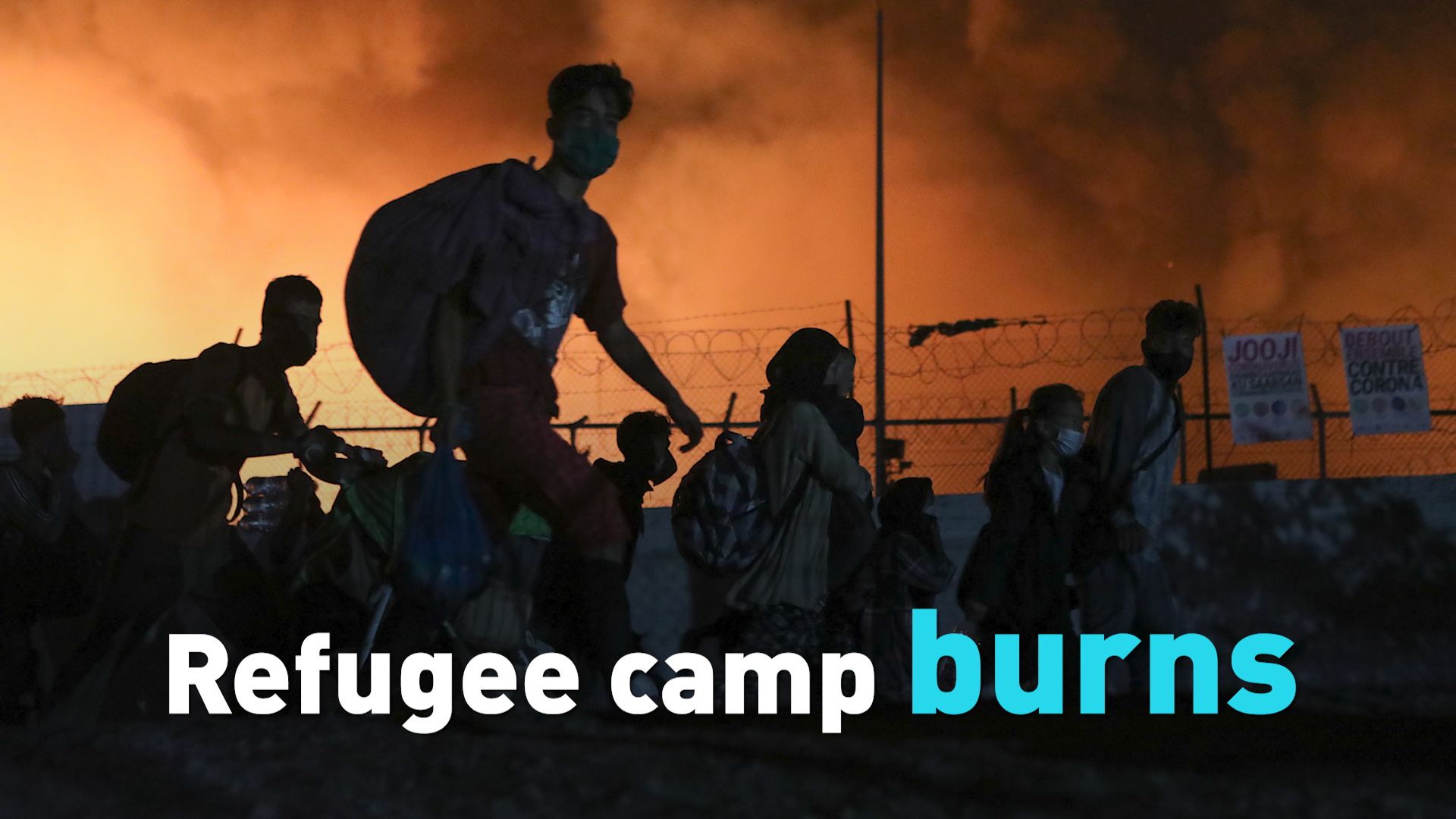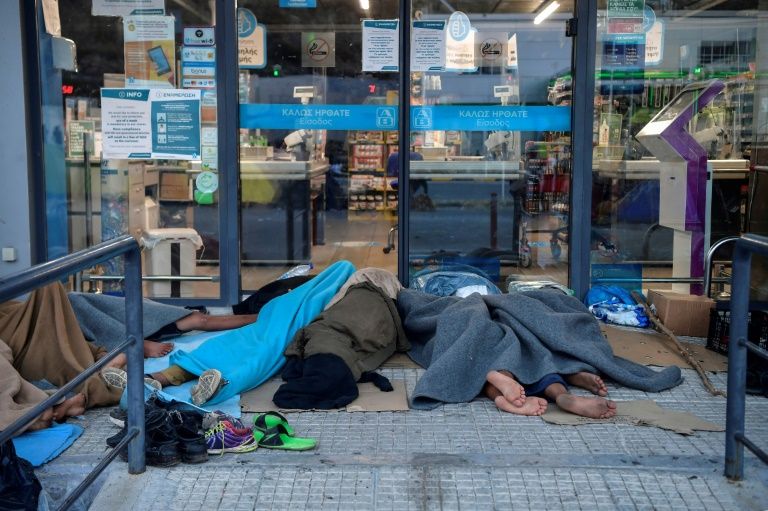02:41

Thousands of asylum seekers sleeping rough around the Greek island of Lesbos were urged to move to a makeshift tent camp on Saturday as tensions with local people simmered four days after a fire destroyed Europe's largest migrant facility there.
Round-the-clock efforts to find temporary shelter for over 11,000 people including thousands of children were still inadequate, rights groups said as local authorities continued to oppose camp reconstruction plans.
"As thousands are now left sleeping rough in the hills around Moria or on the streets, tensions between local residents, asylum seekers, and police are increasing," Human Rights Watch said in a statement on Saturday.
The camp of Moria, which until this week housed over 12,000 people in dismal sanitary conditions, burned down in successive fires on Tuesday and Wednesday.
Many of the mostly Afghan asylum seekers have spent months on the island, hoping in vain to be allowed to cross tightly shut European borders.
Army and fire service helicopters have been used to bypass roadblocks set up by locals to try to prevent a new temporary camp from being built near the ruins of Moria.

Thousands of asylum seekers sleeping rough around the Greek island of Lesbos were urged to move to a makeshift tent camp on Saturday as tensions with local people simmered four days after a fire destroyed Europe's largest migrant facility there. /AFP
Thousands of asylum seekers sleeping rough around the Greek island of Lesbos were urged to move to a makeshift tent camp on Saturday as tensions with local people simmered four days after a fire destroyed Europe's largest migrant facility there. /AFP
Greek Migration Minister Notis Mitarachi on Saturday said the camp, a few kilometers (miles) from Moria, would open to asylum seekers later on Saturday.
"Rapid tests for coronavirus will be conducted at the entrance," Mitarachi told Skai TV.
Local objections
Officials have blamed migrants for the fires at Moria, the first breaking out shortly after 35 people tested positive for coronavirus and were facing isolation measures.
"We are sleeping in the dirt or on the road under the open sky," a group of asylum seekers from the former camp said on Facebook, noting that some people had even found shelter under the trees of the local Greek cemetery.
Volunteer groups have faced difficulty in keeping them supplied with food and water.
Sleeping on the roadside and in parking lots, the asylum seekers have made use of whatever they can find in nearby fields, pinning tarpaulins on tree branches and reeds in a bid for privacy and protection from the beating sun.
The local mayor has rejected the temporary camp initiative as "unrealistic".
"Any thought to rebuild this sort of thing should be forgotten," Mytilene Mayor Stratis Kytelis told Antenna TV on Friday.

Hundreds of migrants are sleeping rough on a road near Mytilene on the Greek island of Lesbos. /AFP
Hundreds of migrants are sleeping rough on a road near Mytilene on the Greek island of Lesbos. /AFP
"The island's society cannot take any more... for reasons of health, social cohesion, national security," Kytelis said.
'Making the same mistake'
Hundreds of asylum seekers staged a street protest on Friday, demanding to be allowed to leave the island.
"Moria burned and instead of taking this seriously they want to do the same mistake. Why do a small camp again? People will burn it again," 18-year-old Omar from Burkina Faso told AFP.
The plight of the stranded families has prompted other European countries to offer to take in hundreds of asylum seekers, particularly unaccompanied youngsters.
But Greece has long complained that, aside from providing funds, its EU partners have done too little to help.
Efforts in the past to create a quota system, which would have seen all European countries agree to take in refugees from Greece, have floundered due to opposition from right-wing governments, in particular in Poland and Hungary.
"Moria is the Europe we need to change. High time for a truly European Migration Policy," European Commission vice-president Margaritis Schinas tweeted Thursday after visiting the island.
"The fires highlight the failure of the European Union's 'hotspot approach' on (Greek) islands, which has led to the containment of thousands of people... with the aim of returning them to Turkey, from which they transited," HRW said.
Source(s): AFP